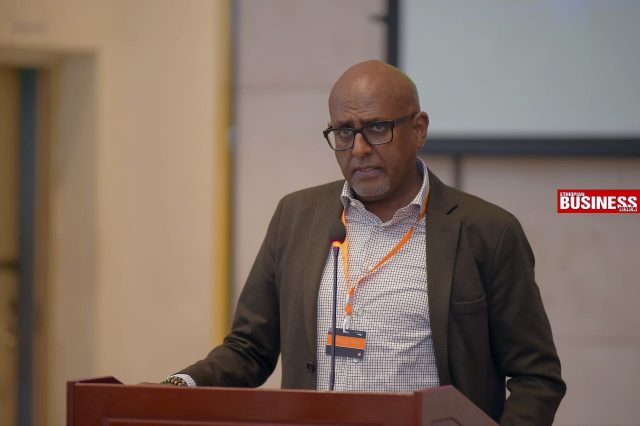Banks Race to Catch the AI Wave as Ethiopia Shifts Financial Gears
Ethiopia’s financial sector is accelerating its shift toward AI-driven innovation, with banks and fintech firms scrambling to recruit top digital talent. At the KAIM 3 & 4 Graduation and Career Fair, 121 newly trained AI and data science professionals were introduced to hiring managers from leading financial institutions, bringing the total number of KAIM graduates to 229.
For decades, access to finance in Ethiopia remains a major hurdle for MSMEs, smallholder farmers, and individuals, as stringent lending requirements and high collateral demands have long limited their ability to secure credit. While financial constraints have stifled grassroots economic growth, large businesses with established networks and stronger financial standing have traditionally dominated access to funding. However, fintech innovations are disrupting the status quo. Kifiya Financial Technology PLC, a digital finance firm, has developed an AI-powered credit scoring system, allowing anyone to access finance without traditional collateral. “Now, your credit score is the new collateral,” said Hayat Abdulmalik, Program Director for Sustainable Access to Finance to Enable Entrepreneurship (SAFEE) at Kifiya Financial Technology. “This will minimize a huge portion of costs, and lenders will be able to extend credit remotely, directly through mobile phones.”
“AI is the backbone of our effort to transform how MSME can access financial services supporting the Ethiopia’s financial sector,” said Munir Duri, CEO of Kifiya Financial Technology. He further highlighted for the graduates that AI has entered the age of agentic AI, as Kifiya is also undergoing an internal transformation to integrate AI at an operational level. “We are developing a full-fledged AI-powered HR system that can receive, analyze, and interview job applicants. What’s exciting is that students from this program built it.”
While these advancements mark a turning point, challenges remain. A lack of AI-skilled professionals threatens the adoption of digital finance solutions. “Many students graduate without the skills the industry demands,” Hayat noted. To bridge this gap, Kifiya is launching the Kifiya AI Mastery Training Program in partnership with 10 Academy and signing an MoU with Addis Ababa University to integrate AI-focused courses into the university curriculum. Additionally, collaborations with banks aim to upskill professionals already working in the sector.
Ethiopia’s broader digital literacy challenge also looms large. Seyoum Mengesha, CEO, Digital Economy Development, the Ministry of Innovation and Technology, acknowledged that gaps in the country’s education system have slowed the adoption of AI-powered financial solutions. “Kifiya’s AI Mastery Training Program will undoubtedly help equip youth with industry-relevant skills,” he said. “But this needs to be scaled up nationwide.”
Backed by the Mastercard Foundation, 10 Academy, and Kifiya Financial Technology, KAIM isn’t just training professionals—it’s shaping the future of Ethiopian finance. The initiative is focused on three critical shifts: moving from collateral-based to non-collateral lending, shifting credit access from large businesses to MSMEs and smallholder farmers, and leveraging AI and data to drive financial inclusion.




